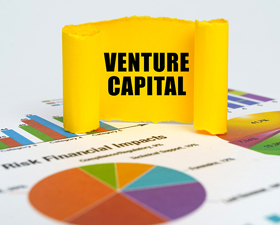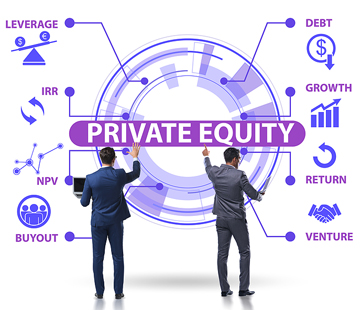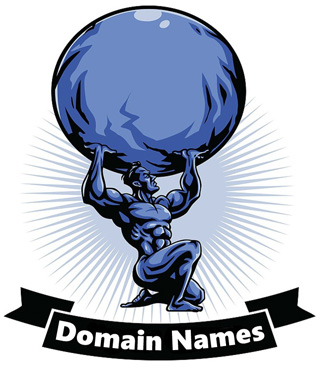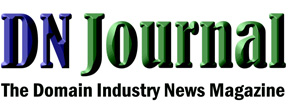|
So, now
finding ourselves at another crossroads created
by war, inflation, a crypto crash, bank defaults, etc.
it was fortuitous that I already had Andrew on the
phone. His analysis of the situation was so timely
I decided we
needed to get those comments out to readers right away
(with this Cover Story being the result).
The less time sensitive (but no less interesting)
personal profile will follow as our next Cover Story
in May. So, having set the stage, I will step back and
hand the baton off to Andrew.
Andrew
Rosener: I want to break this out in two
parts. I think it's important that we separate the
macro from the domain name industry
fundamentals. So from a macro perspective, I do
not think that we're out of the woods. I think that we
have probably one big, really deep economic leg
down to come. It's going to be really painful.
But I don't think that it'll be particularly long
lived. I think it'll be short but sharp. (Editor's
note: Just days after we spoke, the sharp
pain Rosener predicted became a reality when
the Silicon Valley Bank collapsed in just 48
hours after a bank run that also toppled Signature
Bank less than 24 hours later. The SVB collapse was
the second biggest bank failure in American history).
With respect to domains, at Media Options, in 2022 we had the worst second half in the history of the company and
Q3 2022 was
the worst quarter that we had ever had. Then Q4 was
worse than that, so I was quite pessimistic coming
into 2023. But January was a shockingly good month and
February 2023 was a record month. So we've had
an incredibly bullish and exciting start to 2023 and I'm
cautiously optimistic for but I think we are going to run into some major
financial headwinds.
|

Image
from Bigstock |
I always tell people there are three buckets of
buyers for domain names in the high value, ultra
premium .com market ($100,000 and up) that is our
bread and butter. In that sphere, there are
venture-backed startups, private equity and
multinational Fortune 1000 type companies that are
launching a new product or service. At the end of
2022, venture capital, which is the largest
bucket, completely slammed the brakes. They
were going to their portfolio companies and saying,
"Look, you need to constrain cash.
You need to get a 12, 18 or 24 month runway. You need
to lay off employees" - it was all about conserve
cash and cut costs. |
|
Private
equity - that bucket is even uglier.
Private equity has been under tremendous amounts of
consolidation. They've been passing hot potatoes
from one firm to the next and with each
incremental pass of the potato, there were these
incremental write-ups so that they would look good to
their LPs (limited partners). It was like a game of
musical chairs. That worked for a long time because
they had off-ramps. The off-ramp was going
public and the SPAC
market. Plus, the IPO market was one of
the most robust markets since the dot-com bubble. That
window closed. There are no more SPACs happening
for the most part, and the IPO market has chilled to
Antarctic temperatures. Without an off ramp in the
private equity market, you're seeing a lot of distressed
debt, that I think could end up being the trigger
for the |

Image
from Bigstock |
|
next big economic
cataclysm. A lot of unhappy
LPs, who thought they were making a lot of money on
paper, are now realizing that they're never going
to get any gains out of that which explains why
they're not buying domains or deploying more
capital. |
|

Image
from Bigstock |
Now
look at bucket #3 with the Fortune 1000
multinationals and it's exactly the same thing as
the VC world. Stockholders and board members demanded
cost cutting, people are being laid off by the tens of
thousands and nobody is going to stick their neck out
and say, I know we just fired 10,000 people but maybe
we should buy this domain name for a million dollars,
right?
So
basically all three of those doors slammed shut
but they can only shut the door for so long.
Ultimately, these are businesses - their
objective in life is to grow and, as the saying
goes, you're either growing or you're dying. So, I
think that as a result of cost cutting and pull back
on spending in Q3 and Q4 of 2022, balance sheets were
getting written down for
|
|
the
first time with of that is being expressed now with a
rebound in Q1 2023. I
don't think that's sustainable but you have to
make hay while the sun shines. |
There
still so much uncertainty. I think it really
is going to come down to China and Russia and do
we end up in a protracted war that destabilizes the
two poles? If that's the case and there's decreasing
levels of commerce happening between the West and the
East, that's just not good for business. It's
going to be a depressed economic environment if we
can't find a resolution, which I'm becoming
increasingly less optimistic about.
When
the situation is resolved, I think that we'll see a tremendous
rebound that will probably be bigger and longer
than most people anticipate. I think that inflation is
going to be stickier than most people expect and
interest rates will also remain higher than most
think. I believe a lot of things will lead to a
totally different paradigm than we've been in for
the last decade, which was low interest rates, loose
money. While it seems counterintuitive, historically
we've seen higher interest rates and a tighter
monetary environment leads to better
investments. Better investments lead to bigger
more successful companies. More successful
companies lead to bigger domain purchases. So,
while I am cautious about the short to mid-term, I'm
pretty bullish about where we'll be, let's say 18 to
24 months from now.
|
Now,
all of that is the macro picture. The domain name
fundamental picture, I would argue, has never
been stronger. I don't think there has ever been
more reasons to buy a premium domain name, more education,
more opportunity or more willing
participants than there is today. I've spent every
day for the last 13 or 14 years is making contact with
some of the most successful, powerful entrepreneurs,
investors and operators on the planet and I've been
able see trends in the way that their thinking
changes. If we take a snapshot of what does a domain
buyer look like, that has changed over time. Now,
successful entrepreneurs tend to understand why
they should own their exact brand match .com domain
name. They have a long term vision and know that
vision requires investment in their brand. They
understand that if they're a digital business, the
digital version of their brand is the most important
asset the company owns. |

Image
from Bigstock |
These
entrepreneurs, most of whom have already built other
successful businesses, are in a very good position now
too. In the current environment where engineers
are being laid off, they can actually get good
talent without having to compete for them with
Google, Facebook, etc. These founders start with a
great domain name and a high probability of success
because they're going to have less competition in an economic environment where the most money goes
to the best companies, which is opposite of what's
happened over the last 10 years.
I
also think that the use cases for domain names are
going to expand in the next five to ten years in ways
that were unimaginable just a few years ago. I
think that we're going to see an integration of
Cryptosphere or Web3 or whatever you want to call it
with legacy domain names. We're going to see more
adoption from large corporations utilizing domain
names for identity products and payment
products. These are inherent things that can be done
in the legacy DNS system. It doesn't require a web3
domain name, but very few people are taking advantage
of it. There's GPS utility, Internet of Things
utilities where some of these AIs and robots that are
connected to the internet are going to be
identified through domain names and controlled
through domain names remotely.
I think there's a
tremendous number of use cases that are going to
emerge over the next five years that are going to
drive the next massive wave of domain name value.
With that will come new people in the speculation
market and new people at the end user level. I think
that what is clear is the speed at which premium
.com domain names are decreasing in number
and increasing in value. That will lead to
people expanding into some of the the other TLDs,
which I think we're starting to see the early innings
of now.
|

Image
from Bigstock |
I
used to stay awake at night thinking about what's
going to replace domains? You know, is it apps? Is
it social media? Is it web 3 domains? What I've come
to understand - and credit to Rick Schwartz that
he has understood this for more than 20 years - is
that domain names aren't going to go away in my
lifetime. This is layer one of the tech
stack for the entire digital universe and we
are not going to go build web 3 or web 5 on a new
tech stack. That's not going to happen. We're going to
take the existing internet and we're going to add a
new interoperability layer just like we did from web 1
to web 2 and from from Web2 to Web3, it's all the
same web. It's just with new tools and
interoperability utilizing new protocols.
But at the bottom of that stack, in every instance,
and for every instance in the foreseeable future, are domain
names - and premium .com domain names are going to
remain the shiny object on the hill for that layer
of the tech stack.
|
|





